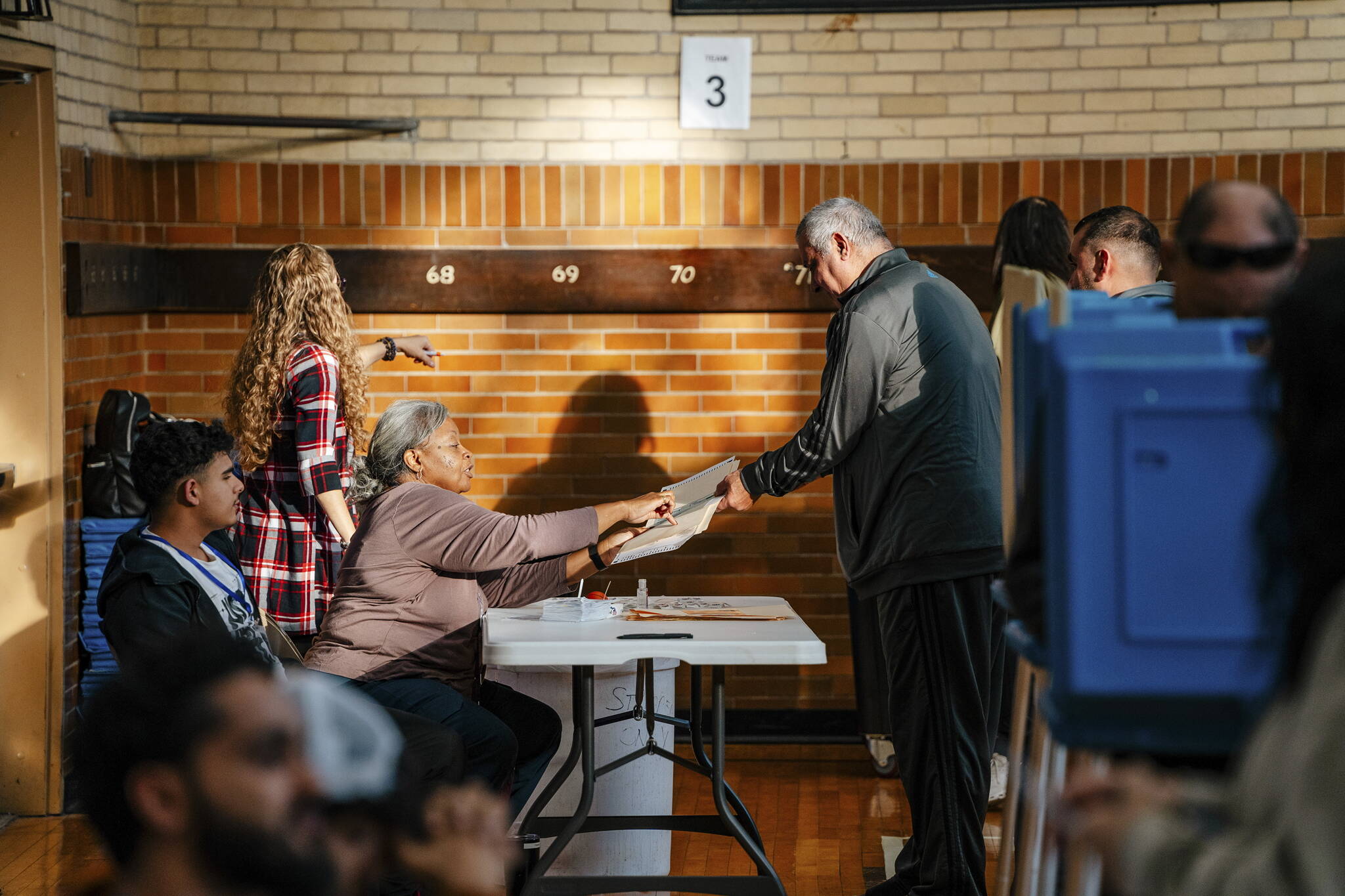Donald Trump has captured Pennsylvania, the biggest prize of the seven battleground states in one of the most consequential presidential elections in modern American history. It all but seals his return to the White House four years after voters turned him out.
Georgia, a state that Trump narrowly lost in 2020, and North Carolina, a state he narrowly won, had already moved into the win column for the former president. With Pennsylvania gone, Vice President Kamala Harris’ “blue wall” along the Great Lakes has cracked, and her path to becoming the first woman in the Oval Office has nearly disappeared.
Republicans also flipped control of the Senate with a string of key victories. In Ohio, Bernie Moreno defeated Sen. Sherrod Brown, a resilient red-state Democrat. The retiring Sen. Joe Manchin, I-W.Va., will be replaced by the state’s Republican governor, Jim Justice. And Sen. Deb Fischer held off a dark-horse challenge in Nebraska from a blue-collar independent, Dan Osborn, eliminating any path Democrats had toward retaining control of the chamber.
The crowd at Harris’ election watch party at her alma mater, Howard University in Washington, had already thinned by midnight, and the mood was glum when Cedric Richmond, a co-chair of the Harris campaign, told those who were left that the vice president would not be coming to campus. Her supporters streamed for the exits.
Trump showed his strength early, winning Texas and Florida easily and defying recent polls, such as one in Iowa, that seemed to show a surge of support for Harris.
Republican-held Senate seats that Democrats had hoped to at least make competitive — such as Ted Cruz’s in Texas and Rick Scott’s in Florida — were not even close. And Republican leaders in Florida were also able to defeat ballot initiatives to expand abortion rights and legalize recreational marijuana, both of which failed to reach the 60% they needed.
A largely peaceful Election Day was marred by bomb threats that roiled polling places in Democratic regions of Georgia, Arizona and Michigan. Officials said none of the threats appeared to be credible, but at least in Georgia and Arizona, some polling places stayed open later as a result. Election officials in those states attributed at least some of the threats to Russian actors.
Democrats did score some landmark wins. For the first time in history, the Senate will have two Black women, both Democrats, serving simultaneously: Rep. Lisa Blunt Rochester won her Senate contest in Delaware, while Angela Alsobrooks defeated moderate former Gov. Larry Hogan in Maryland. Sarah McBride, D-Del., will also be the first transgender member of the House.
In the battle for the House, Republicans were holding their own in key races, leaving control up for grabs.
But Democrats flipped two Republican-held seats in New York state, with state Sen. John Mannion and Josh Riley, a former U.S. Senate policy analyst, defeating incumbent Reps. Brandon Williams and Marc Molinaro, according to The Associated Press. And Shomari Figures, a Democrat and former Justice Department official, won election in Alabama’s newly drawn 2nd Congressional District, according to the AP, handing his party a rare pickup in the South.
This article originally appeared in The New York Times.

